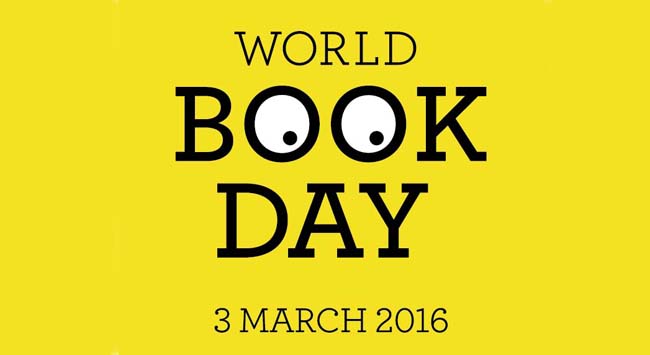World Book Day 2016: Ten Waterloo novels
March 3, 2016 - Richard Moss in Book Reviews
We select ten of the best Waterloo novels.
The team at Waterloo200 have chosen their favourite Waterloo novels and works of fiction for World Book Day 2016. Our lively list of historical tales was selected by Sir Evelyn Webb-Carter, Carole Divall and Michael Crumplin.
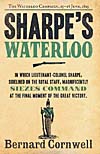 Bernard Cornwell, Sharpe’s Waterloo, 1990, Collins, London
Bernard Cornwell, Sharpe’s Waterloo, 1990, Collins, London
The eponymous hero settles some old scores with love rivals and still finds time to warn the Duke of Wellington of Napoleon’s impending invasion before departing for a major role in nearly all the main infantry actions on the battlefield. “Sharpe just gets everywhere in the battle!” says Michael Crumplin.
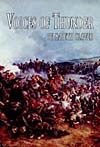 Gareth Glover, Voices of Thunder, 2003, UPSO
Gareth Glover, Voices of Thunder, 2003, UPSO
The Battle of Waterloo seen through the eyes of the 95th Rifles and Mercer’s Battery, the Royal Horse Artillery, based on meticulous research by Glover who drew on unpublished accounts for this searing soldier’s eye view of the battle.
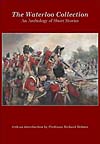 Various, The Waterloo Collection, An Anthology of Short Stories, 2011, Active Sprite Press
Various, The Waterloo Collection, An Anthology of Short Stories, 2011, Active Sprite Press
Forty-four short stories written by adults, five written by young people and a poem come together for a publication produced to raise funds for the restoration of Chateau Hougoumont. The late Sir Richard Holmes provides the introduction to these varied yet powerful works.
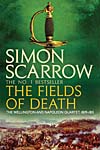 Simon Scarrow, The Fields of Death, Two Commanders, One battle: Waterloo, 2010, Headline
Simon Scarrow, The Fields of Death, Two Commanders, One battle: Waterloo, 2010, Headline
Simon Scarrow’s Waterloo novel dramatizing the role of the two military commanders when they faced each other at Waterloo; sees the author bring a historian’s eye and grasp of the historical detail to a gripping novel that holds the attention across 700-odd pages.
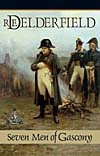 R.F.Delderfield, Seven men of Gascony, 1949, Military Fiction Classics
R.F.Delderfield, Seven men of Gascony, 1949, Military Fiction Classics
Seven friends enlist in the French army and their various and varied experiences bring a cleverly imagined French perspective to Napoleon’s wars as each man finds himself a pawn in the Emperor’s campaigns across Europe.
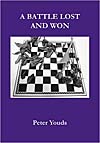 Peter Youds, A Battle Lost and Won, 2015, Bicorn Books
Peter Youds, A Battle Lost and Won, 2015, Bicorn Books
The concluding novel in a series of nine books, entitled Ties of Blood, which follow the military careers, entwined with the private lives, of a group of related characters, English, Spanish and French. “These nine books enable the author to explore aspects of war in an imaginative and satisfying way, culminating in the vividly conveyed drama of Waterloo,” says Waterloo200 Editor Carole Divall.
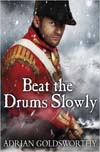 Adrian Goldsworthy, Beat the Drums Slowly, 2011, Orion
Adrian Goldsworthy, Beat the Drums Slowly, 2011, Orion
The second book in a series, which like Youds’ focuses on a group of characters in order to avoid what Carole Divall describes as the “Sharpe syndrome” (the hero who is everywhere and does everything). Goldsworthy has invented a regiment, thus being able to shift the perspective from officers to men as the 106th Foot battle their way through Spain and Portugal.
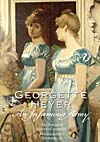 Georgette Heyer, An Infamous Army, 1937, Heinemann
Georgette Heyer, An Infamous Army, 1937, Heinemann
Another great bodice ripper combining Regency romance with vividly narrated descriptions of the Battle of Waterloo in a typically bravura Waterloo novel that moves seamlessly from the machinations of love rivals in Brussels to a detailed description that takes in all the major elements of the battle. “Pretty good rubbish I know but novel none the less!” says Sir Evelyn Webb Carter.
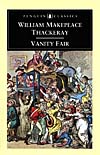 William Makepeace Thackray, Vanity Fair, 1847, Penguin
William Makepeace Thackray, Vanity Fair, 1847, Penguin
The famous sprawling Regency family drama has the Battle of Waterloo at its centre; the heroine’s husband, George Osborne, dies at Waterloo. “Darkness came down on the field and city: and Amelia was praying for George, who was lying on his face, dead, with a bullet through his heart.” A book about how war affects those left at home.
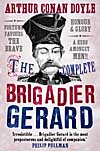 Arthur Conan Doyle, The Exploits of Brigadier Gerard 1896, Canongate Classics
Arthur Conan Doyle, The Exploits of Brigadier Gerard 1896, Canongate Classics
Conan Doyle originally published his short stories about a French Hussar in Napoleon’s Army in the Strand Magazine between 1894 and 1903, and the vain but gallant soldier still has his fans today. George MacDonald Fraser even cited Brigadier Gerard as an inspiration for Harry Flashman. Enough said.
Find out more about World Book Day at www.worldbookday.com


